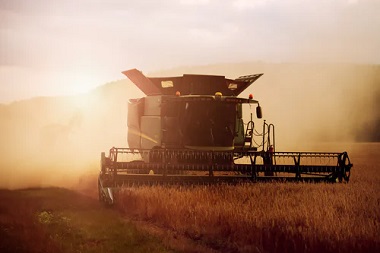Enjoy products now while you can afford them
Oregon agricultural products will soon see a necessary price increase to accommodate additional government mandates that are about to be passed in the Oregon State Legislature.
HB 2358 has been introduced by Representative Salinas (D-Clackamas), Representative Holvey (D-Eugene), Representative Ruiz (D-Portland), and Senator Frederick (D-Portland). It proposes to eliminate the agricultural exemption for payment of overtime to agricultural workers.
The
Fair Labor Standards Act of 1938, 29 U.S.C. § 203 (FLSA), is the United States labor law that created the right to minimum wage, and time-and-a-half overtime pay when people work over forty hours a week. Since it's passage it has been amended several times to increase the actual minimum wage and to encompasses specific job classes into the Act, but the inclusion of agricultural workers has never been incorporated into federal changes. Six states currently have some form of requirements to pay agricultural worker’s overtime; California, Minnesota, Hawaii, Washington, Maryland, and New York. Each of them varies slightly in how they apply. Oregon looks to be the next to join the list.
During testimony on the bill, Representative Bobby Levy (R–Echo), herself a rancher, said “feeding Oregon is a thankless job. The biggest obstacle to working in the ag industry is that the cost to produce our commodities is often more than we get paid for doing itâ€. She also expressed concerns for the other bills being entertained this session that will continue to stack costs on agricultural businesses.
Mike Omeg, a 5th generation cherry farmer from The Dallas explained to the committee how migrant workers here on the H2A visa program are required to be paid based on Federal H2A rates, and in Oregon that is $16.34. The rate is set to ensure that a US citizen ag worker is not displaced by a guest worker. He added that “farmers in our current structure set our wages to meet the current laws not because we are racist.†He and others also shared that consumers set the prices for agricultural crops and consumers will simply buy imported produce and ag commodities from other states or countries. In addition, one organic grower shared that because they use fewer chemicals in their farming practices and have gone to great lengths to reduce the use of fossil fuel vehicles, they will have no other choice than to abandon some of those practices to account for the increased labor costs.
Supporter of the bill, Oregon Climate & Agriculture Network (OrCAN)
submitted testimony citing a study done by the National Agricultural Workers Survey (NAWS). It reported that individual farm workers earn $15,000 to $17,499 a year. However, with Oregon’s current minimum wage rate at $12.00 and $12.75 in agricultural communities, that would mean that ag employees are working well under 40 hours per week. A 40-hour work week at current minimum wage is ~$25,740. In that same report, it was noted that only 51% of the respondents had authorization to work legally in the US.
A D V E R T I S E M E N T

A D V E R T I S E M E N T
In other testimony, supporters of the legislation pointed out that “Farm labor workers receive no overtime and/or holiday payâ€. Holiday pay is not mandated on any small or large employer in the state. Many employers use this as an incentive to attract labor. They also noted that farm workers receive no health benefits. However, any employer in the state with less than 50 employees is not required to provide healthcare coverage to their employees. Many family farmers themselves do not have health insurance because to acquire it on the exchange costs them several thousand dollars and they just can’t afford it. Finally, they pointed out that farm labor does not receive an employer 401K. Again, this benefit is not specific to the ag industry. Many small, medium and large size employers do not offer 401Ks or other retirement plans to their employees.
After two days of testimony and hundreds of letters submitted to the committee in opposition, they chose to move it to the Legislative Rules Committee on a party line vote. They ignored a proposed amendment to phase in the overtime regulation, and one to increase the 40-hour threshold to 45. They also ignored an offer from Representative Post (R–Keizer) to host a work-group to see what could be worked out between now and next session. He said he “has many farmers in his district and they have expressed to him their concerns, and those are based in economics not racism, and rushing into this decision without all parties at the table to first discuss it is not good policyâ€.
During the vote, however, Representative Bynum (D-Clackamas) who owns and operates four McDonald’s Restaurants in the Portland metro area stated that “It’s a human rights issue and to be quite honest as we listened to testimony, the optics are really bad, the optics are horrible, and the history of the whole conversation is quite tormentingâ€.
The bill currently sits in the
State Legislative House Rules Committee where it can be heard again at anytime before the end of session.
--Terese Humboldt| Post Date: 2021-04-26 16:08:06 | Last Update: 2021-04-26 18:10:21 |







